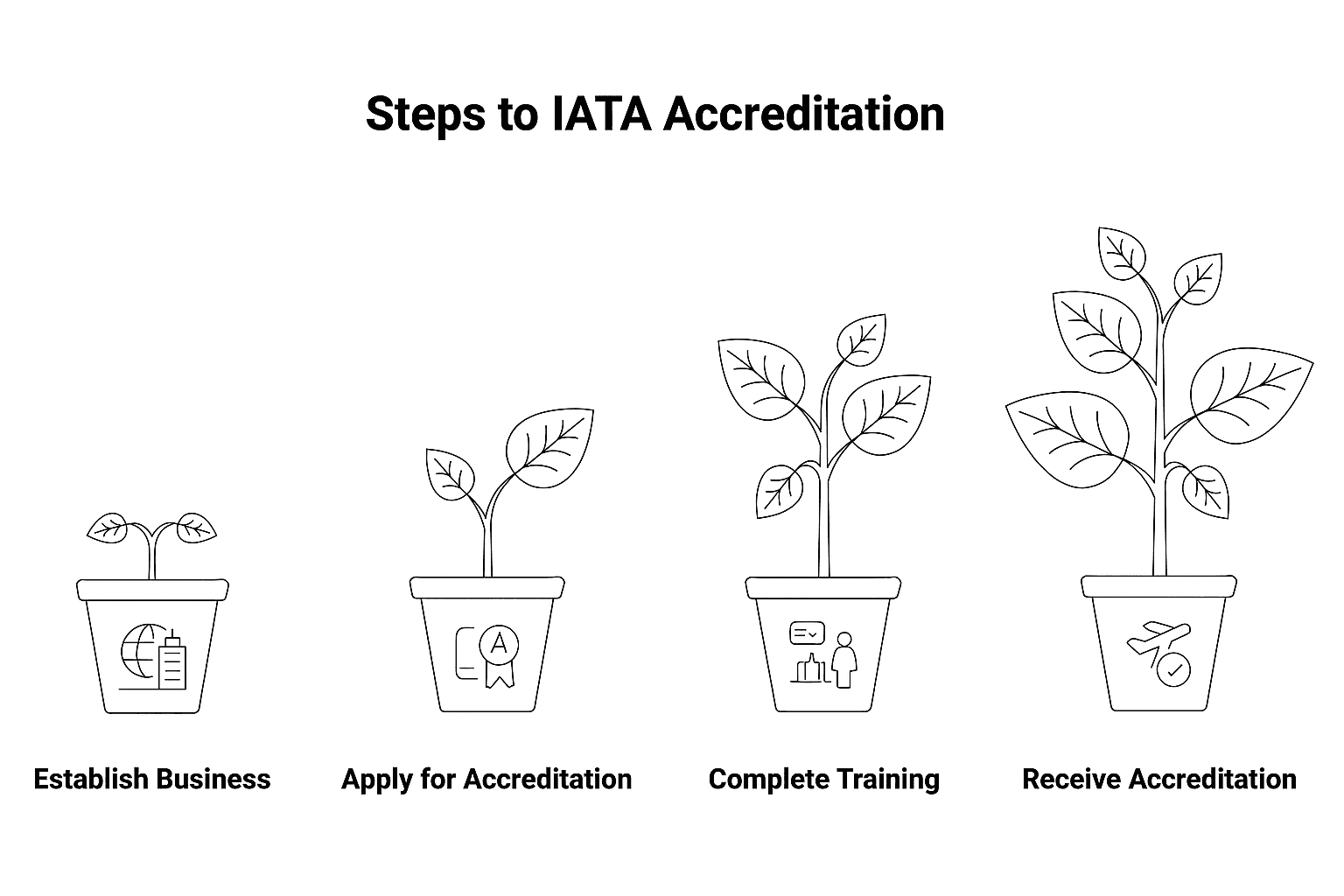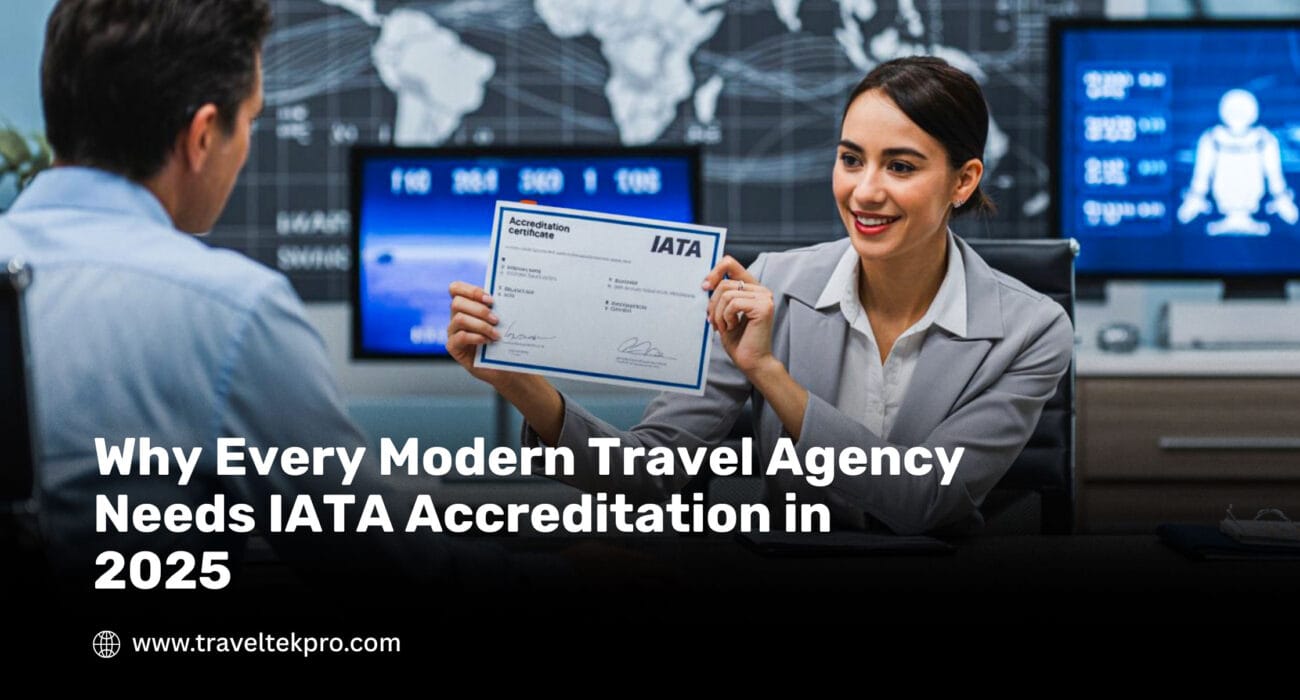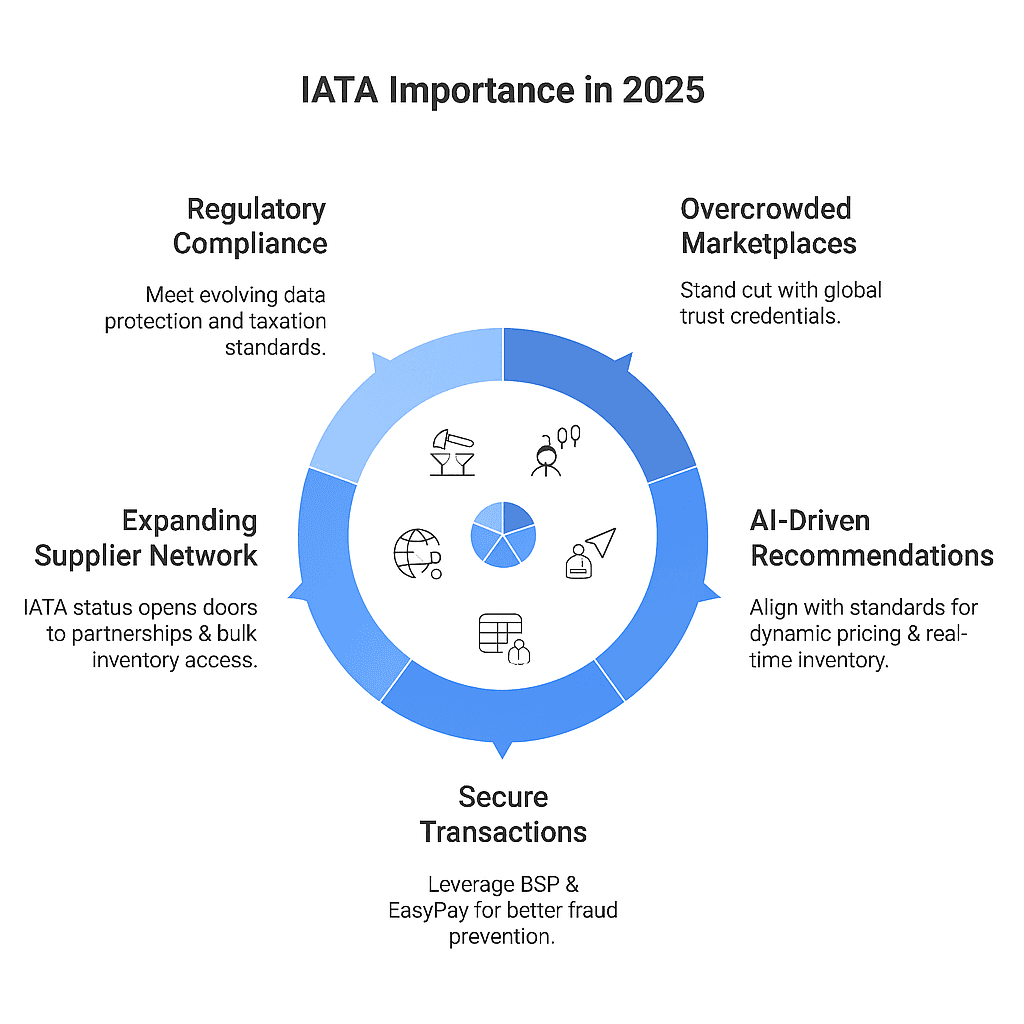Why Every Modern Travel Agency Needs IATA Accreditation in 2025
IATA Accreditation in a Digitally Disrupted Travel Industry
In 2025, the travel industry is unrecognizable compared to just a decade ago. With AI-powered recommendations, real-time global inventory, and rising data protection standards, credibility and compliance are non-negotiable. Amid this rapid evolution, IATA Accreditation has emerged as the most reliable hallmark of professionalism and operational readiness for travel agencies.
For agencies aiming to scale, integrate airline partnerships, or automate their systems, iata accreditation for travel agents is no longer a luxury—it’s a necessity. It signals trust, authority, and global compliance in an increasingly competitive and tech-driven market.
What Is IATA Accreditation?
Understanding the IATA Framework
The International Air Transport Association (IATA) is a trade association that represents around 300 airlines globally, accounting for over 80% of total air traffic. It governs critical frameworks like passenger ticketing, financial settlement through BSP (Billing and Settlement Plan), and IATA EasyPay, a secure pay-as-you-go option.
For travel agencies, obtaining IATA Accreditation allows them to sell international and domestic tickets on behalf of IATA member airlines, access negotiated fares, and streamline operations under a standardized global system.
What Is IATA Certification and How Is It Different?
Many confuse what is IATA certification with accreditation. Certification typically refers to IATA training programs such as the “Foundation in Travel & Tourism” course. While these credentials validate your knowledge, IATA Accreditation provides official authorization to issue tickets, access airline systems, and participate in global distribution frameworks.
Why IATA Accreditation for Travel Agents Is Crucial in 2025
1. Establishing Instant Credibility
In a marketplace cluttered with unaffiliated agents and online booking tools, IATA Accreditation sets your agency apart. It assures clients, airlines, and partners that your operations meet international financial and operational standards.
2. Direct Access to 300+ Airlines
With IATA credentials, agencies can bypass middlemen and issue tickets directly via Global Distribution Systems (GDS). This leads to better pricing, improved customer service, and fewer booking errors.
3. Improved Margins & Commission Structures
By cutting out third-party consolidators, accredited agencies retain higher profit margins and can negotiate directly with carriers. This not only improves revenue but also enables better bundling of services.
4. Streamlined Financial Operations with BSP & EasyPay
The Billing and Settlement Plan (BSP) simplifies financial reporting and reconciliation between airlines and agents. With IATA EasyPay, small and mid-sized agencies can make secure payments without collateral or bank guarantees.
5. Enhanced Global Networking Opportunities
IATA connects agencies to over 77,000 partners worldwide. This opens doors to joint ventures, affiliate marketing, and cross-border expansion especially for digital agencies scaling globally.
6. Compliance with Modern Regulations & Security Protocols
As travel fraud and cybersecurity threats rise, IATA Accreditation enforces strict compliance with PCI DSS standards, transaction transparency, and dispute resolution protocols.
Types of IATA Accreditation Models Available in 2025
IATA has modernized its structure to accommodate varying business models:
1. GoLite
Ideal for digital-only or small agencies. Requires no financial security and supports IATA EasyPay transactions only.
2. GoStandard
Traditional model for agencies with office space and direct airline ticketing needs. Offers access to BSP and EasyPay.
3. GoGlobal & GoEurope
Designed for agencies operating across multiple countries or regions. Offers harmonized access and compliance support under one umbrella.
Step-by-Step Guide to Getting IATA Accreditation in 2025
1. Prepare Your Legal and Financial Documentation
- Company registration documents
- Trade license
- Proof of financial stability (e.g., bank statements)
- Staff experience and qualifications
2. Create an Account on the IATA Customer Portal
Upload your documents, choose your business model, and submit digitally. No postal submissions are required in most regions.
3. Undergo IATA Training (Optional but Valuable)
Training like the Foundation in Travel & Tourism is recommended but not mandatory. Digital certificates are verifiable globally.
4. Approval Timeline and Regional Differences (IATAN in the US)
Most applications are processed in 20–25 business days. U.S. applicants go through IATAN, a domestic division of IATA, with additional requirements like ARC coordination.
Key Benefits of IATA Accreditation in 2025
| Benefit | Description |
| Instant Credibility | Stand out from unverified travel providers. Accreditation equals professionalism. |
| Direct Airline Access | Issue tickets directly using GDS or airline systems. No middlemen. |
| Higher Profit Margins | Earn better commissions and negotiate directly with airline partners. |
| Streamlined Operations | Use BSP for reconciliations and IATA EasyPay for security-free payments. |
| Global Networking | Become part of a 77,000+ agency network operating under global standards. |
| Compliance & Security | Stay up to date with data privacy, safety regulations, and fraud control. |
Use Case: Aisha’s Journey from Local Agent to Global IATA Partner
Aisha, a travel consultant from Mumbai, once relied on ticket consolidators with razor-thin margins. After achieving iata accreditation for travel agents, she accessed direct airline systems, boosted profits by 34%, and became a recognized name in the GCC travel market. Within a year, her agency became a preferred partner for multiple carriers.
How to Become an IATA-Accredited Travel Agent
1. Choose Your Model
- GoLite: Digital-only agency
- GoStandard: Traditional agency with physical office
- GoEurozone: For European Union-wide ops
- GoGlobal: For multinational travel networks
2. Prepare Documentation
- Company registration
- Trade license
- Proof of financial stability
- Travel industry experience
- Staff qualifications
3. Register via the IATA Customer Portal
Create an account and upload your documents digitally.
4. Complete IATA Training (Optional but Recommended)
Courses like “IATA Foundation in Travel & Tourism” strengthen your application.
Digital certifications are verifiable worldwide via QR code.
5. Wait for Approval
Once verified, your accreditation is approved in ~25 working days.
Note: For U.S. agents, the process goes through IATAN (a separate branch under IATA).
Trends Fueling the Demand for IATA Accreditation
AI, Personalization & Real-Time Booking Expectations
With AI-driven platforms dominating bookings, having IATA access ensures your agency can compete with real-time inventory, loyalty integrations, and dynamic pricing.
Cybersecurity & Payment Trust
IATA-approved systems minimize fraud by integrating secure payment options like EasyPay, BNPL, and fraud detection APIs.
Sustainability & Regulatory Pressures
Regulators now demand data on carbon emissions and client protections. IATA platforms allow transparent reporting and alignment with ESG goals.
Why It’s Crucial in 2025
| Trend | Why IATA Helps |
| Overcrowded Marketplaces | Stand out with global trust credentials |
| AI-Driven Recommendations | Align with standards for dynamic pricing & real-time inventory |
| Secure Transactions | Leverage BSP & EasyPay for better fraud prevention |
| Expanding Supplier Network | IATA status opens doors to partnerships & bulk inventory access |
| Regulatory Compliance | Meet evolving data protection and taxation standards |
Expert Insight
“IATA Accreditation is the bridge between being a reseller and becoming a serious player in global aviation commerce.”
Conclusion: Your Next Step in Professional Travel Evolution
In the competitive world of travel commerce, IATA Accreditation is more than a badge—it’s your agency’s gateway to global scalability, automation, and legitimacy. Whether you’re exploring new GDS partnerships, optimizing commissions, or modernizing payment systems, IATA opens those doors. So, if you’re serious about growth, automation, and trust-driven travel operations, it’s time to stop asking what is IATA certification and start your journey toward full IATA Accreditation.
FAQ’S
1. Why pursue IATA accreditation for travel agents in 2025?
It provides ticketing authority, brand trust, access to negotiations, global standards compliance, and essential infrastructure for growth.
2. Can agencies operate without IATA Accreditation?
Yes, via consolidators or host agencies, or with partial credential like TIDS. But they lose direct access, commission potential, and independent control.
3. How long does the IATA accreditation process take?
From application to issuance, expect around 25 working days for non‑US agencies. US agencies via ARC may require longer (up to 90 days) due to bond/fees and interviews.
4. What is the difference between full IATA Accreditation and TIDS?
Full accreditation authorizes ticketing and BSP access. TIDS is non‑ticketing and suitable for agencies selling via third parties while still gaining IATA recognition.
5. What is iata accreditation for travel agents in 2025?
It is the approval process that grants agencies access to airline inventory, BSP, commissions, tools like BSPLink, and global recognition.
6. How does IATA Accreditation support compliance and security?
It enforces PCI DSS standards via BSP support and financial audits, ensuring safe and compliant handling of payments and data.
Let's Start Your Project
Let us help you achieve your goals, by creating the best solution for you!


